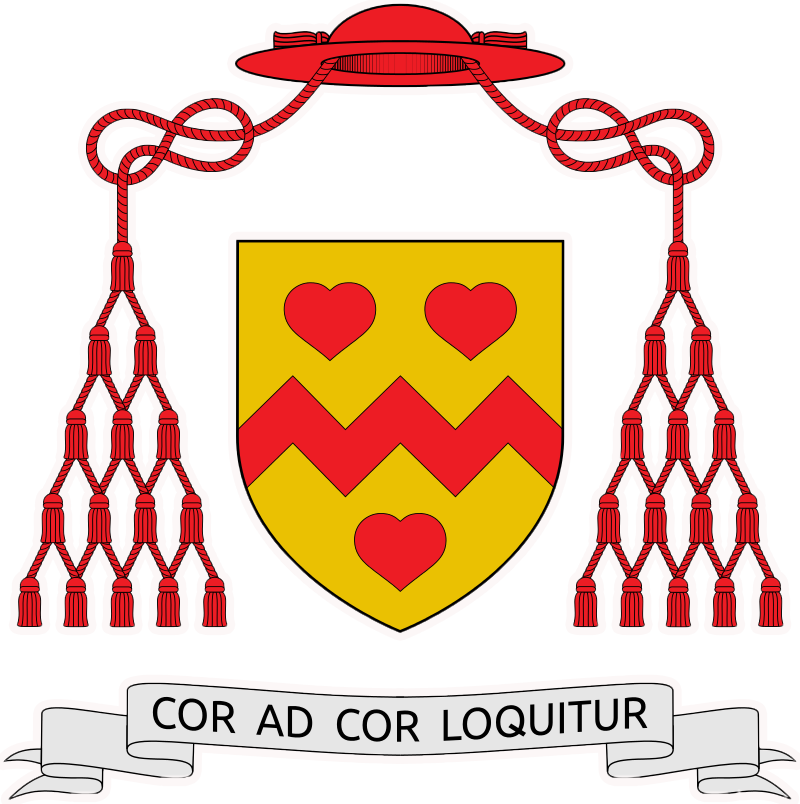Sociology and Psychology
Welcome to our A Level Sociology section
Within these pages you will find lots of information about the subject. If you have any queries regarding A Level Sociology, please do not hesitate to get in touch with me.
Sarah Hoskins
Head of Department – Social Sciences
Please read our Curriculum Statement
Links to specifications
A level Psychology - https://www.aqa.org.uk/subjects/psychology/as-and-a-level/psychology-7181-7182
A Level Sociology - https://www.aqa.org.uk/subjects/sociology/as-and-a-level/sociology-7191-7192

A Level Sociology (Exam board AQA Sociology 7192)
Pupils will sit three two-hour exams in June of the second year of study.
Within the field of Sociology, pupil study –
- sociological theories, perspectives and methods
- the design of the research used to obtain the data under consideration, including its strengths and limitations.
Pupils must study the following two core themes:
- socialisation, culture and identity
- social differentiation, power and stratification.
The central focus of study in this specification should be on UK society today, with consideration given to comparative dimensions where relevant, including the siting of UK society within its globalised context.
Subject Content
Paper 1 – Education and Methods
- topic areas in relation to the two core themes (socialisation, culture and identity; and social differentiation, power and stratification)
- both the evidence of and the sociological explanations for the content listed in the topic areas below.
Education
- the role and functions of the education system, including its relationship to the economy and to class structure
- differential educational achievement of social groups by social class, gender and ethnicity in contemporary society
- relationships and processes within schools, with particular reference to teacher/pupil relationships, pupil identities and subcultures, the hidden curriculum, and the organisation of teaching and learning
- the significance of educational policies, including policies of selection, marketisation and privatisation, and policies to achieve greater equality of opportunity or outcome, for an understanding of the structure, role, impact and experience of and access to education; the impact of globalisation on educational policy.
Methods in context
Pupils must be able to apply sociological research methods to the study of education.
Theory and methods
- quantitative and qualitative methods of research; research design
- sources of data, including questionnaires, interviews, participant and non-participant observation, experiments, documents and official statistics
- the distinction between primary and secondary data, and between quantitative and qualitative data
- the relationship between positivism, interpretivism and sociological methods; the nature of ‘social facts’
- the theoretical, practical and ethical considerations influencing choice of topic, choice of method(s) and the conduct of research
- consensus, conflict, structural and social action theories
- the concepts of modernity and post-modernity in relation to sociological theory
- the nature of science and the extent to which Sociology can be regarded as scientific
- the relationship between theory and methods
- debates about subjectivity, objectivity and value freedom
- the relationship between Sociology and social policy.
Paper 2 – Topics in Sociology
Families and Households
- the relationship of the family to the social structure and social change, with particular reference to the economy and to state policies
- changing patterns of marriage, cohabitation, separation, divorce, childbearing and the life course, including the sociology of personal life, and the diversity of contemporary family and household structures
- gender roles, domestic labour and power relationships within the family in contemporary society
- the nature of childhood, and changes in the status of children in the family and society
- demographic trends in the United Kingdom since 1900: birth rates, death rates, family size, life expectancy, ageing population, and migration and globalisation.
Beliefs in Society
- ideology, science and religion, including both Christian and non-Christian religious traditions
- the relationship between social change and social stability, and religious beliefs, practices and organisations
- religious organisations, including cults, sects, denominations, churches and New Age movements, and their relationship to religious and spiritual belief and practice
- the relationship between different social groups and religious/spiritual organisations and movements, beliefs and practices
- the significance of religion and religiosity in the contemporary world, including the nature and extent of secularisation in a global context, and globalisation and the spread of religions.
Paper 3 – Crime and Deviance with theory and methods
- Topic areas in relation to the two core themes (socialisation, culture and identity; and social differentiation, power and stratification)
- Both the evidence of and the sociological explanations for the content listed in the topic areas below.
Throughout, pupils should be encouraged to use examples drawn from their own experience of small-scale research. Attention should be given to drawing out links with other topics studied in this specification.
Crime and Deviance
- crime, deviance, social order and social control
- the social distribution of crime and deviance by ethnicity, gender and social class, including recent patterns and trends in crime
- globalisation and crime in contemporary society; the media and crime; green crime; human rights and state crimes
- crime control, surveillance, prevention and punishment, victims, and the role of the criminal justice system and other agencies.
Theory and Methods
- quantitative and qualitative methods of research; research design
- sources of data, including questionnaires, interviews, participant and non-participant observation, experiments, documents and official statistics
- the distinction between primary and secondary data, and between quantitative and qualitative data
- the relationship between positivism, interpretivism and sociological methods; the nature of ‘social facts’
- the theoretical, practical and ethical considerations influencing choice of topic, choice of method(s) and the conduct of research
- consensus, conflict, structural and social action theories
- the concepts of modernity and post-modernity in relation to sociological theory
- the nature of science and the extent to which Sociology can be regarded as scientific
- the relationship between theory and methods
- debates about subjectivity, objectivity and value freedom
- the relationship between Sociology and social policy.
Welcome to our A Level Psychology section
Sarah Hoskins
Head of Department – Social Sciences
A Level Psychology(Exam board AQA Psychology 7182)
Pupils will sit three two-hour exams in June of the second year of study.
Pupils should be able to
- demonstrate knowledge and understanding of psychological concepts, theories, research studies, research methods and ethical issues in relation to the specified Paper 1 content
- apply psychological knowledge and understanding of the specified Paper 1 content in a range of contexts
- analyse, interpret and evaluate psychological concepts, theories, research studies and research methods in relation to the specified Paper 1 content
- evaluate therapies and treatments including in terms of their appropriateness and effectiveness.
Knowledge and understanding of research methods, practical research skills and mathematical skills (see Annex: Mathematical requirements and exemplifications) will be assessed in Paper 1. These skills should be developed through study of the specification content and through ethical practical research activities, involving:
- designing research
- conducting research
- analysing and interpreting data.
In carrying out practical research activities, pupils will manage associated risks and use information and communication technology (ICT).
Subject Content
Social influence
- Types of conformity: internalisation, identification and compliance. Explanations for conformity: informational social influence and normative social influence, and variables affecting conformity including group size, unanimity and task difficulty as investigated by Asch.
- Conformity to social roles as investigated by Zimbardo.
- Explanations for obedience: agentic state and legitimacy of authority, and situational variables affecting obedience including proximity, location and uniform, as investigated by Milgram. Dispositional explanation for obedience: the Authoritarian Personality.
- Explanations of resistance to social influence, including social support and locus of control.
- Minority influence including reference to consistency, commitment and flexibility.
- The role of social influence processes in social change.
Memory
- The multi-store model of memory: sensory register, short-term memory and long-term memory. Features of each store: coding, capacity and duration.
- Types of long-term memory: episodic, semantic, procedural.
- The working memory model: central executive, phonological loop, visuo-spatial sketchpad and episodic buffer. Features of the model: coding and capacity.
- Explanations for forgetting: proactive and retroactive interference and retrieval failure due to absence of cues.
- Factors affecting the accuracy of eyewitness testimony: misleading information, including leading questions and post-event discussion; anxiety.
- Improving the accuracy of eyewitness testimony, including the use of the cognitive interview.
Attachment
- Caregiver-infant interactions in humans: reciprocity and interactional synchrony. Stages of attachment identified by Schaffer. Multiple attachments and the role of the father.
- Animal studies of attachment: Lorenz and Harlow.
- Explanations of attachment: learning theory and Bowlby’s monotropic theory. The concepts of a critical period and an internal working model.
- Ainsworth’s ‘Strange Situation’. Types of attachment: secure, insecure-avoidant and insecure-resistant. Cultural variations in attachment, including van Ijzendoorn.
- Bowlby’s theory of maternal deprivation. Romanian orphan studies: effects of institutionalisation.
- The influence of early attachment on childhood and adult relationships, including the role of an internal working model.
Psychopathology
- Definitions of abnormality, including deviation from social norms, failure to function adequately, statistical infrequency and deviation from ideal mental health.
- The behavioural, emotional and cognitive characteristics of phobias, depression and obsessive-compulsive disorder (OCD).
- The behavioural approach to explaining and treating phobias: the two-process model, including classical and operant conditioning; systematic desensitisation, including relaxation and use of hierarchy; flooding.
- The cognitive approach to explaining and treating depression: Beck’s negative triad and Ellis’s ABC model; cognitive behaviour therapy (CBT), including challenging irrational thoughts.
- The biological approach to explaining and treating OCD: genetic and neural explanations; drug therapy.












